|
Infinite oceans of loneliness. Imagine what it is like to one moment be strong in mind and body and the next be reduced to a quivering mass of flesh, as unable to survive this world as a translucent jellyfish stranded on a sun burnt beach. It isn't the pain that is so insufferable, it is the agonizing loneliness that comes from knowing you will never be part of the normal world again. I went to a concert of Laura Silvan, up in San Francisco. That's where the loneliness began. That's when I began to dream. "You'll have a great time," Liddy had chided earlier that day, pulling me away from my workstation wall-screen. As the long legged secretary of the computer science department, Liddy did as she pleased. "Besides, you'll turn into a quantum transistor if you don't get away from that network of yours!" Like Liddy knew what a quantum transistor was. My computer wasn't an ordinary workstation, or even a tablet, I don't do game aps for adolescents. My system is the "Super Grid", a computer of computers made from a vast networked cloud of peta-flop super-computers that stretched so far we were unsure where in the world the last nodes extended. As director of the California Institutes’s SuperGrid Computing Center, I had free rein over its operation - hell, I'd designed most of it. I teach
graduate courses in artificial intelligence and mathematics. My
personal interest was growing fractals, intricate mathematical
arabesques of turbulence and order within Super Grid's network
cloud as part of my incubator research grant from International
Computing Machines (ICM). "You're right, Liddy," I agreed, even as I was mesmerized watching a living cloud of pixels form on my wall monitor. "I'm creating a new universe on SuperGrid, a living organism! But, sometimes I have to remind myself I'm human, not a machine." "Damn straight!" Liddy laughed as she pulled me forcibly away. "I don't want to hear any more of your cyber jibber jabber! Besides, the concert tickets are free."
Liddy brought Bruce, her graduate student boyfriend from the biogenetic studies program (an AlGorean disciple). I think Liddy thought I was lonely; she paired me with Shelley, a bookish assistant professor from the mis-anthropology department. Shelley also moonlighted as a watcher in the ubiquitous campus National Civilian Security Force - NCSF. That made me nervous, I have a hard time maintaining political correctness. We were a match made in Hades. "I write computer software," I hedged my introduction to Shelley, who though somewhat plump was an otherwise pleasantly rabid feminist sweathog. "How interesting," she lied, obviously uninterested, as she texted away on her smartphone. "My personal pronouns are Xe/Xir/Xem/Xeir. But what do you think of the anti-feminist ethnic cleansing in Brazil?" She interjected without missing a beat. "Should we send troops?" NCSF cadre could never leave politics at the office. My eyes rolled up into my head. How could I explain the intricate fractal software I created to Shelley, the neural networks I mapped onto the complex number plane and which were the essence of life and being? They were infinitely more important to me than an androgynous peasant uprising in some godforsaken Amazon backwater. But it would all be gibberish to Shelley. It was sometimes gibberish even to me. While Shelley and Liddy struck up a conversation on the musical merits of Laura Silvan, I drifted into my own thoughts: I was 32 years old and I'd spent much of the last dozen years more attached to a computer than to the outside world - what the few remaining Normals called "the real world". I had the uneasy feeling it was all a waste of time and my sterile academic attachment to grid clouds was a form of madness. I had been inspired growing up by the reports from Gaggle that their LAMBDA AI might become sentient, I believed the abstract world of digital logic could solve the world's problems. But at best my computer bubble was a feeble solution to loneliness, a way to replace my awkward human contacts with a virtual world of my own making. Grow up! I told myself that daily. After the Dot Com world imploded generations ago, no one believes geeks can solve the world's problems anymore. Social media at first made billionaires but provided precious few solutions for the human condition. After the Mini World War III, when China and Russia cemented their economic sphere, Americans had been forced to confront the reality of having to make things. Robots had displaced millions of workers leaving the populace wary of all things digital. As the Great Biflationary Depression dragged on to new decades, even Apple Computers, the holy grail of computer geekdom, was now just a Chinese subsidiary of bankrupt cyber flotsam headquartered in a broken down Taiwan factory. After the Artificial Intelligence algorithms that ran the search universe became subsidiaries of the national intelligence agencies, life had become a bewildering search for truth. So I broke away from SuperGrid to physically go to San Francisco to hear Laura Silvan sing, to watch her perform - her act was the rave. We drove to the concert in Liddy's old yellow Mercedes from the cretaceous; environmentally taboo it was Liddy's one conceit with plush leather seats that were only slightly cracked.Liddy brought her graduate student boyfriend with, Bruce from the biogenetic studies program (a Gorean endworld disciple). She paired me with Shelley, a bookish assistant professor from the mis-anthropology department who also was part of the ubiquitous campus National Civilian Security Force. I think Liddy thought I was lonely. "I write Artificial Intelligence software," I hedged my introduction to Shelley, a somewhat plump but otherwise pleasantly rabid feminist. "How interesting," she lied, obviously uninterested. "But what do you think of the anti-feminist ethnic cleansing in Brazil? Should we send troops?" NCSF cadre could never leave politics at the office. My eyes rolled up into my head. How could I explain the intricate fractal software I created to Shelley, the neural networks I mapped onto the complex number plane and which were the essence of life and being? They were infinitely more important to me than an androgynous peasant uprising in some godforsaken Amazon backwater. But it would all be gibberish to Shelley. It was sometimes gibberish even to me. While Shelley and Liddy struck up a conversation on the musical merits of Laura Silvan, I drifted into my own thoughts: I was 32 years old and I'd spent much of the last dozen years more attached to a computer terminal than to the outside world, what normals called "the real world". I had the uneasy feeling it was all a waste of time and my sterile academic attachment to grid machines was a form of madness. At best, it was a feeble solution to loneliness, a way to replace my awkward human contacts with a virtual world of my own making. Grow up! I told myself daily. The Dot Com world had imploded more than a generation ago. and no one believes geeks Yet, there I was, an Ubergeek, a believer in all things digital. "I have a computer in my office," Shelley, the anti-technologist valiantly offered. "But I never use it. I use Apps!" I crossed my eyes and gave her such a crazed look that she laughed.
"This is where the ethnic rapture began," Bruce commented as we passed a sidewalk shrine of yellow roses with tacky plastic flower-edged photos of those massacred by the police in the ethnic uprisings. "Some of the Hsi Lai Temple disciples are always here."
"Do you think ethno-cults should be banned?" Shelley tried to goad me into conversation, or catch me in a racist comment, her anthropologist and NCSF cadre interests surfacing. "You've hardly said a word." "Ah, I've been rude," I apologized, trying to hide the little interest I had in the human condition. "Sometimes I forget where I am. I really don't know much about the ethno-purges." It was true. I had tried to insulate myself from an illogical world in which multi-cultural factions warred over everything from ethnic cleansing to race based ecological hyper feminist awareness. The Aztlanos, the Gorean Green Worlders, the Tangs, the Sharia territorialists, all represented a pea soup of nihilism to me that I avoided like Ebola. The American government was in a continuous state of collapse, the five continents were in economic and social upheaval, the whole structure of civilization was corrupt. And I just didn't care. "He doesn't know much about the world outside his computer!" Liddy teased cheerfully while Bruce smiled in agreement. "He's a professor, you know," Liddy concluded. "They're not required to keep track of earthlings! Zot! Whirrr! Chink!" She mimicked a robot with devastating effect, complete with robotoid arm and head movements. China Town refocused to become the lights of North Beach, as blinding in their decadence as the red light district filled with happy-ending Asian slaves they promoted. Without knowing how, back streets led us to a funky warehouse-turned-concert-theater called the Palladium and I began to creep out of my blue funk and enjoy myself. The Palladium was white hot with light that shimmered through drizzling rain and skated off the wet asphalt like ice. We walked towards the nightclub entrance, engulfed by people and by the sounds of life on the high side. Maybe it was time to kick back and be human. The letters "Look, she's a Goddess," Bruce crowed over the concert poster of Laura Silvan, teasing a blushing Liddy who was herself as fine a creature as could be manufactured on planet earth. "And you're an insensitive insect!" Liddy chided her boyfriend, self assured in her place at the head of the local feminine pecking order. "Women shouldn't have to put up with such humiliating treatment," Shelley counterjabbed in defense of Liddy (who needed no defense). "We're not sexual bimbos you can rate like a meat market! ! ! It's the same as mental rape! ! !" "But she is a Goddess!" I interjected, stopping Shelley short from an impending dissertation on the evils of males. "I'm forced to agree with Bruce." The poster of Laura Silvan, pop singer, femme fatale, looked straight back at me, as though an inanimate two dimensional poster could burn a hole straight through my soul. I was star struck. Laura Silvan was the up and coming star, she'd made her mark plying the chic neon nightclubs of L.A., San Francisco and Vegas. Unlike her competition of vacuous child starlets on endless vacations from drug-rehab, she seemed to thrive on the transparent affectations of the West Coast entertainment community without being consumed by it all. She was just going national, we were going to catch her act before she got too big and the Paparazzi owned her soul. Black lights made our drinks glow blue as we took a table just off the dance floor. The Palladium was vibrating; too cool, too hip, faster than the slickest of the soc-net wannabes who crowded its dance floor. Many were high, fueled with drugs and/or money crimped from foodstamps or from affluent parents of the new nomenklatura. Yet, in their wilding eyes their grandest hope was to be nine-to-five work slaves in the real world, to be normal. I wasn't part of this scene, and that made me even more a part of it. We survived forty-five minutes of bombardment by the warmup band, Discontinuity, who made the Palladium bounce with a fiery Latin rock that clung parasitically to the dancers and made them squirm. Lasers flickered across the floor of bouncing heads and a video wall played hopped up psychedelic visual interference that tricked the mind's eye by making everything too slick by half. The Retro Ozone children playing with their green chem-lights and high on Synth made everything neon. Discontinuity finally wore themselves out on their limited repertoire, and Shelley, Liddy, Bruce and I talked on in the interim, sipping daiquiris like tomorrow was out of the question. We discussed the ethnic riots which were Balkanizing America. Through pseudologic made possible by corn ethanol, we made easy the link between global warming, overpopulation and the destruction of Amazon rain forests. We moralized longer than our righteous indignation could justify, or our patience survive. "The world can't support this many people," Bruce the ecobiologist/geneticist argued philosophically. "We owe Mother Earth better than to overrun the planet like cockroaches!" "Gaia is threatened by the white male hierarchy which pushes impoverished immigrant cultures into fragile ecosystems!" Shelley ventured. "Who cares?" I ventured irreverently. "I try to ignore consequences that don't touch me. I'm one cockroach who refuses to be exterminated simply to soothe the guilty consciences of other cockroaches!" Stares that could melt the arctic icecap (which had proved obstinately resilient despite global warming). The conversation was about to take a nasty turn, pinwheeling on my anti-social cynicism. "Welcome to the Palladium," we were kindly interrupted by the introduction of the house comedienne, a sprightly nigress named Sapphire whose jokes ricocheted off the audience like hot popcorn. "God must be a black woman. Who else would send out for ribs at creation!" Shelley fumed at the lack of political correctness. "That comedienne is a discredit to her race and gender! She should be reported to the Human Rights Council!" But the crowd was getting into it, anticipating the music that was to come, or perhaps just high on the Yuppie ecstasy trip they thought passed for affluence. "Hyper reality!" I commented. "The whole scene is like some computer hyper reality created out of fractals." "Shut up," Liddy commanded. "You could analyse a sack of potatoes to death!" "She's really right," Shelley agreed. "You could bore a rock," Bruce put in his two cents, making it unanimous. Even I agreed. But it was a hyper reality I saw there. Sapphire sparkled in sequins of midnight blue at the center of a stage that rose along the back wall of the Palladium like a cubist nightmare. Laura Silvan's band, West Coast Blue, was warming up behind Sapphire, wrapping a jazzy Latin rock and roll around the nightclub, painting a mood as indigo as anything I'd ever felt before. "Can you feel it?" Sapphire asked the crowd. "Yes!" "Can you feel it deep inside?" Sapphire coaxed us. "Yes! Yes!" "Then let's bring on Laura Silvan and West Coast Blue and let them take you higher!" And a hot fusion rock beat began, punctuated by the cat screams of an alto sax that cut the air and tore at the heart. Red lasers penciled the smoke of the Palladium and reflected off the mirrored chrome of the interior, chasing in synch to the beat of West Coast Blue.
And could you ever have known
"She's just a rock star!" Shelley tried to bring a sense of reality to me, seeing my eyes go starry. "They're made of common clay just like you and me." "But if that were true, you'd be up there singing, wouldn't you!" Bruce chimed rather cruelly and Liddy smacked him in the back of the head. And then, Laura Silvan was singing again:
That it's a hot black night
Though we'd never met, this woman had a claim on my soul. I know, I know a thousand times, I know this must seem a raving hallucination to you, the drivel of a child. But the connection was there, I swear to God I could feel it flowing through me! The scary part was that I couldn't tell which side of hell this claim on my soul came from. Even as the crowd began to sense the instant chemistry between their rock star and a rather stiff looking fellow (looking surprisingly like a dull college professor stranded out of water), there was a movement to the side of the stage. A movement quick and sure, precise in its lethal intent and direction. From offstage right came a rush of midnight blue sequins, deadly sleek as a stalking panther, looking vaguely like Sapphire the comedienne, but otherwise like a demon of the night with yellow eyes locking me in deadly embrace. Grasped tightly in her two fists was an illegal nickel-plated Colt pointed straight at my heart. I froze, even as the crowd on the dance floor parted like the sea to let her pass. "Assassin!" Sapphire screamed at me and the room became oddly quiet - West Coast Blue cut off and the crowd was shock silenced for one short sliver of time.
|
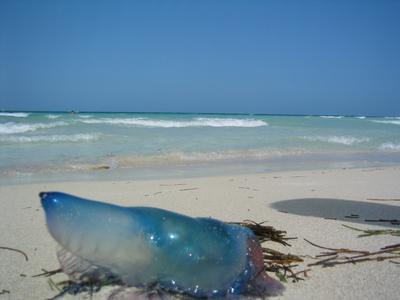 Loneliness.
Loneliness.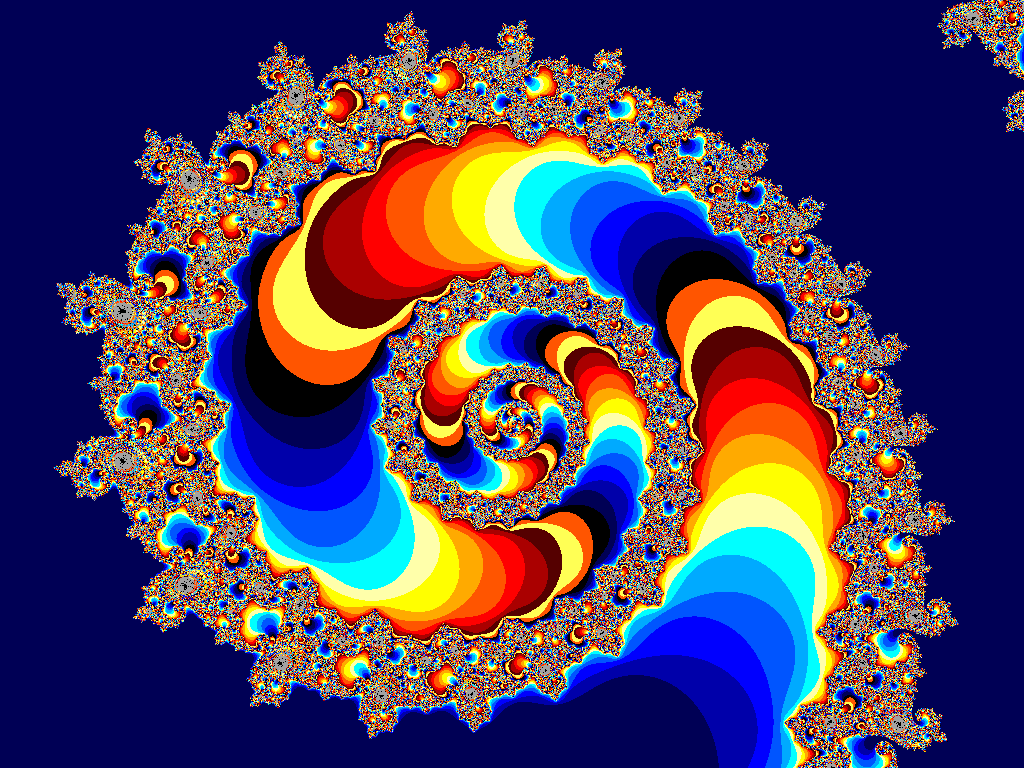 There were times
when I was so entranced by the lacy filigrees that traced
themselves on my computer screen I didn't even bother to go
home.
There were times
when I was so entranced by the lacy filigrees that traced
themselves on my computer screen I didn't even bother to go
home.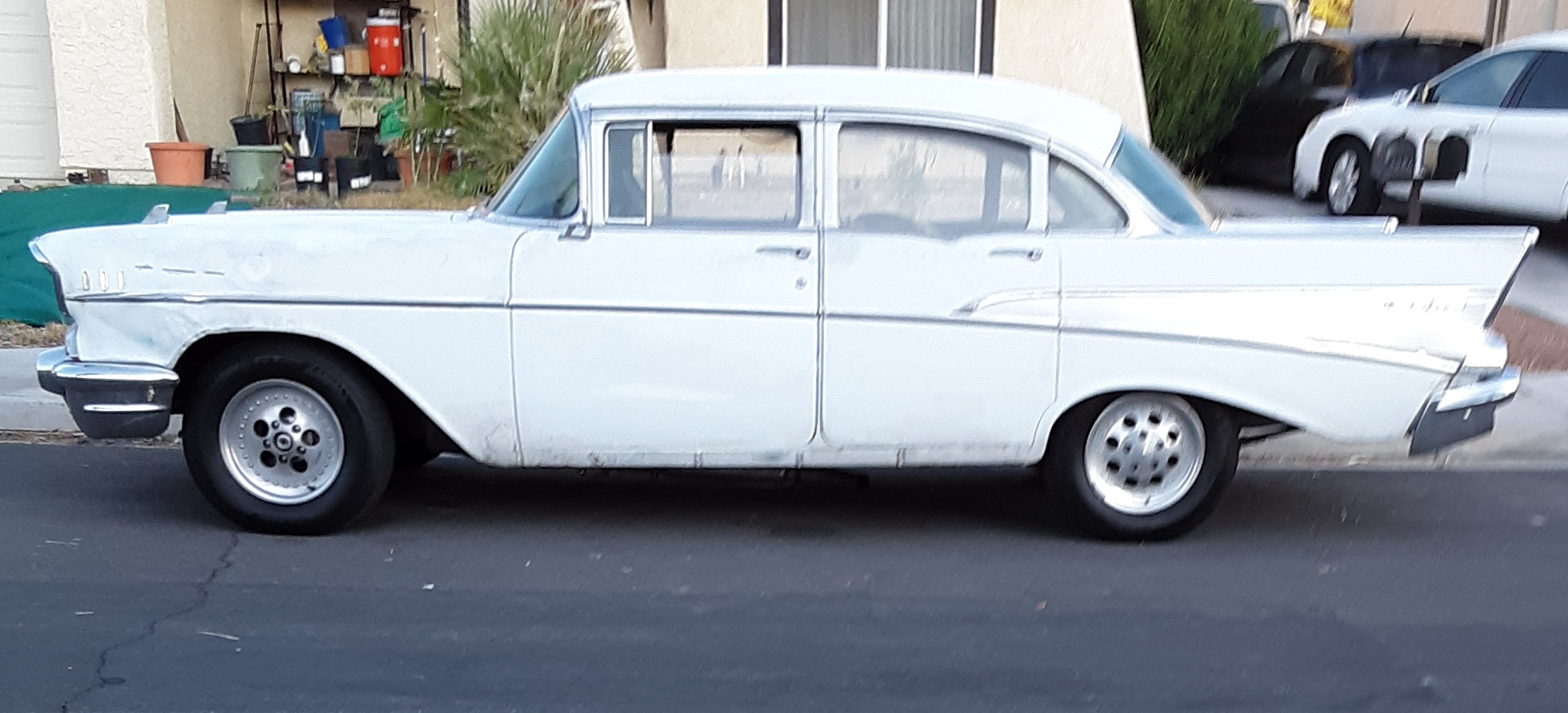 So I broke away from SuperGrid to return to the physical world,
to go to San Francisco to hear Laura Silvan sing, to watch her
perform - her act was the rave. We drove to the concert in Liddy's
old 1957 Chevy Bel Air from the Cretaceous carbon age; grandfathered
in after the Electric Vehicle mandates. Environmentally taboo,
it was Liddy's one conceit with plush leather seats that were
only slightly cracked. She'd saved her precious AlgaeGas ration for
a month to fuel our trip - which was fortunate because the
ElectroCharge Electric Vehicle grid was suffering another
'unexpected' brown-out.
So I broke away from SuperGrid to return to the physical world,
to go to San Francisco to hear Laura Silvan sing, to watch her
perform - her act was the rave. We drove to the concert in Liddy's
old 1957 Chevy Bel Air from the Cretaceous carbon age; grandfathered
in after the Electric Vehicle mandates. Environmentally taboo,
it was Liddy's one conceit with plush leather seats that were
only slightly cracked. She'd saved her precious AlgaeGas ration for
a month to fuel our trip - which was fortunate because the
ElectroCharge Electric Vehicle grid was suffering another
'unexpected' brown-out.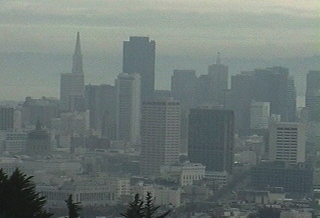 And then we were in San Francisco in the ancient carbon belching Chevy Bel Air
driving by the base of the equally ancient pyramid
building, being none too parsimonious
with our AlgaeGas ration. Bruce was
sipping faux Jack Daniels from a flask. As we drove on, the
night became foggy black punctuated by the screaming red neon of China
Town; light pooled on the wet pavement like blood.
And then we were in San Francisco in the ancient carbon belching Chevy Bel Air
driving by the base of the equally ancient pyramid
building, being none too parsimonious
with our AlgaeGas ration. Bruce was
sipping faux Jack Daniels from a flask. As we drove on, the
night became foggy black punctuated by the screaming red neon of China
Town; light pooled on the wet pavement like blood.
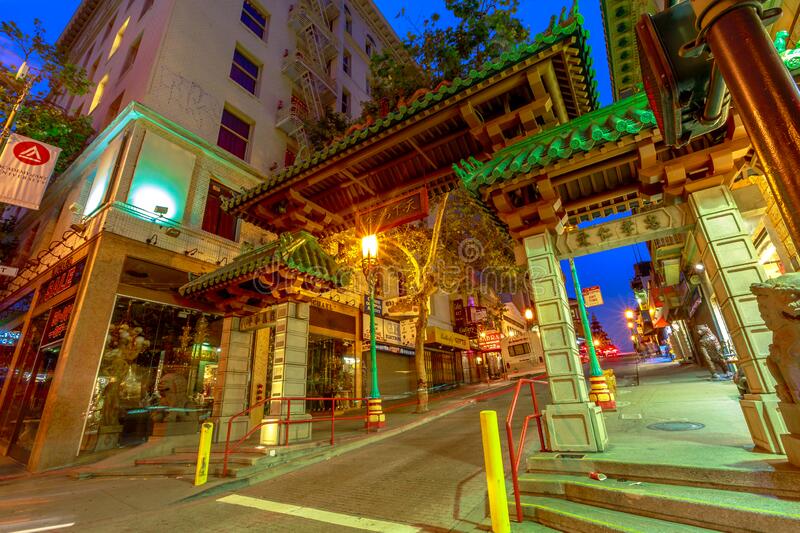 We could see a number of souless creatures circling about,
yellow robed disciples of the guru Asahara, a growing force in the
ethnic peace movement. A major political contributor to the
presidential campaigns, some said Asahara was merely a funnel for
Chinese money from Beijing - but they said it only in whispers. Who
could deny the benefits of the ethnic power movement?
We could see a number of souless creatures circling about,
yellow robed disciples of the guru Asahara, a growing force in the
ethnic peace movement. A major political contributor to the
presidential campaigns, some said Asahara was merely a funnel for
Chinese money from Beijing - but they said it only in whispers. Who
could deny the benefits of the ethnic power movement?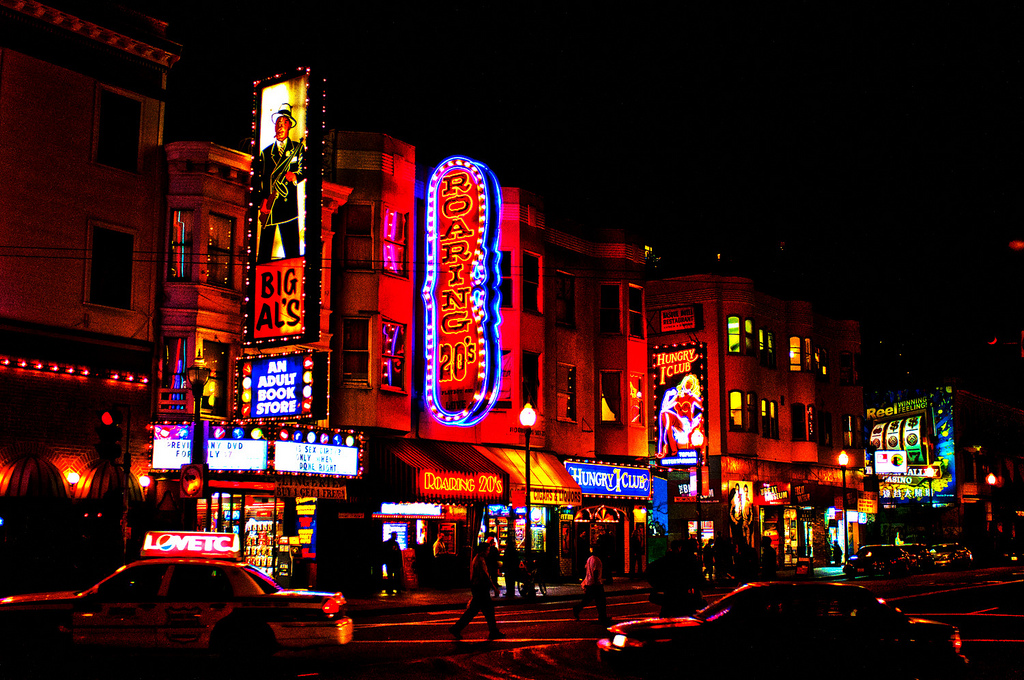
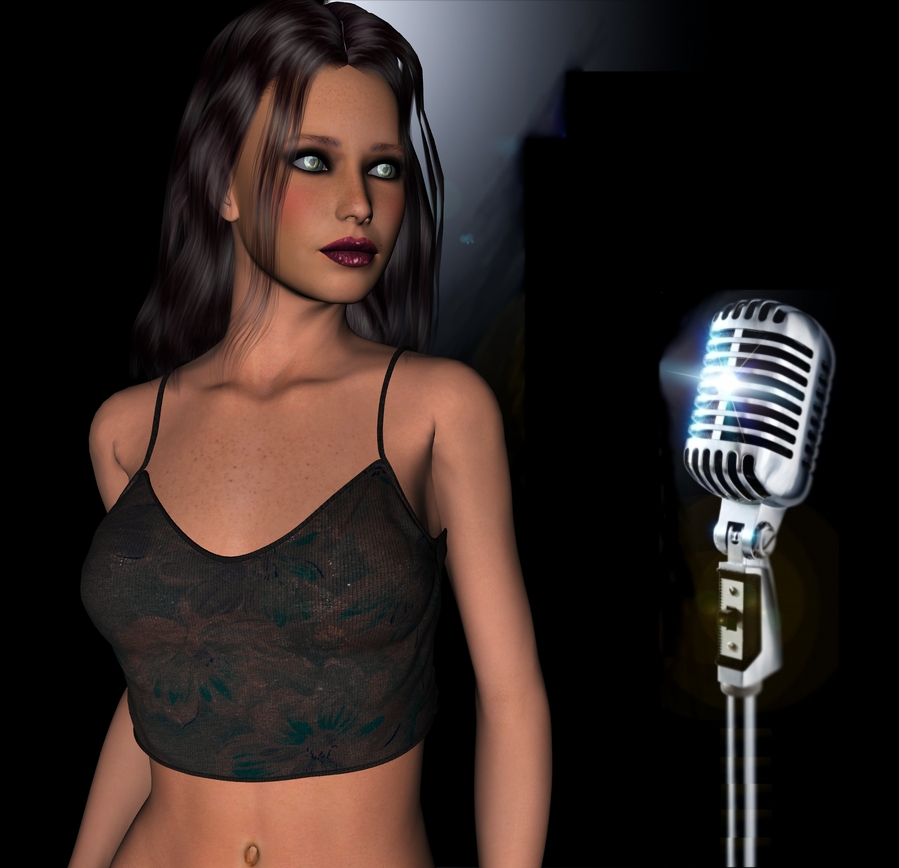 Into the middle of the
maelstrom stalked Laura Silvan, a jet black evening gown clinging
to her slim form, her body a whirlwind of motion unstrained by the
pounding beat that surrounded her. Her hair was gloss black silk,
her skin pearl smooth and her lips a wet pouty red. But it was her
eyes that held me, a cold black infinity that reached towards me
with tentacles that attached themselves to my very soul. She began
to sing.
Into the middle of the
maelstrom stalked Laura Silvan, a jet black evening gown clinging
to her slim form, her body a whirlwind of motion unstrained by the
pounding beat that surrounded her. Her hair was gloss black silk,
her skin pearl smooth and her lips a wet pouty red. But it was her
eyes that held me, a cold black infinity that reached towards me
with tentacles that attached themselves to my very soul. She began
to sing. She was
a flower of the night,
She was
a flower of the night, Unreal was the flash-bang of a bullet
fired, its flame orange and bold in the darkness. I glimpsed the
face of Laura Silvan in the light pulse, like a stroboscopic wraith
above the crowd watching me with burning eyes. And then I felt the
impact of a sledge hammer against my chest before I slipped into a
painful blackness from which I never expected to return.
Unreal was the flash-bang of a bullet
fired, its flame orange and bold in the darkness. I glimpsed the
face of Laura Silvan in the light pulse, like a stroboscopic wraith
above the crowd watching me with burning eyes. And then I felt the
impact of a sledge hammer against my chest before I slipped into a
painful blackness from which I never expected to return.